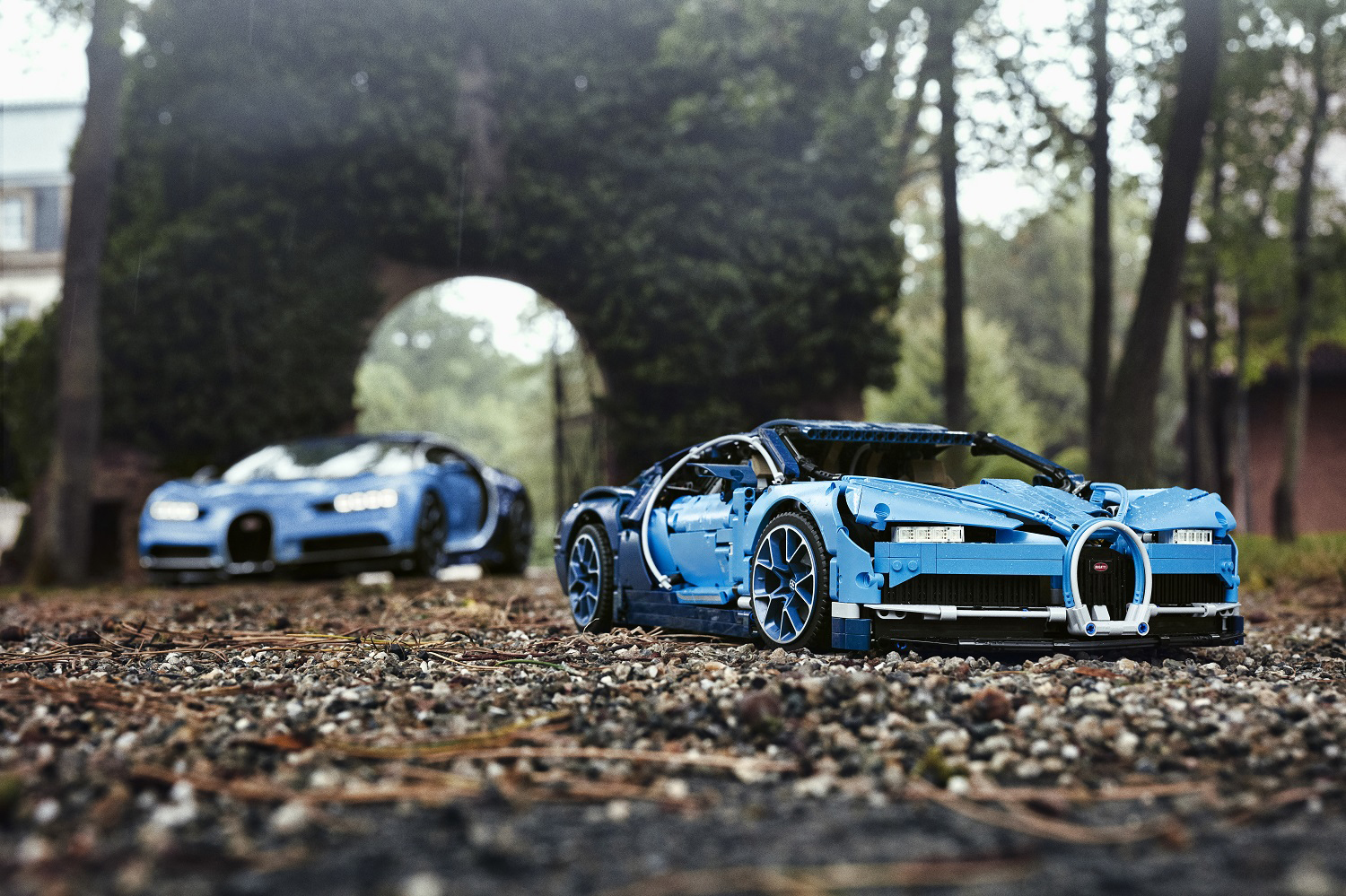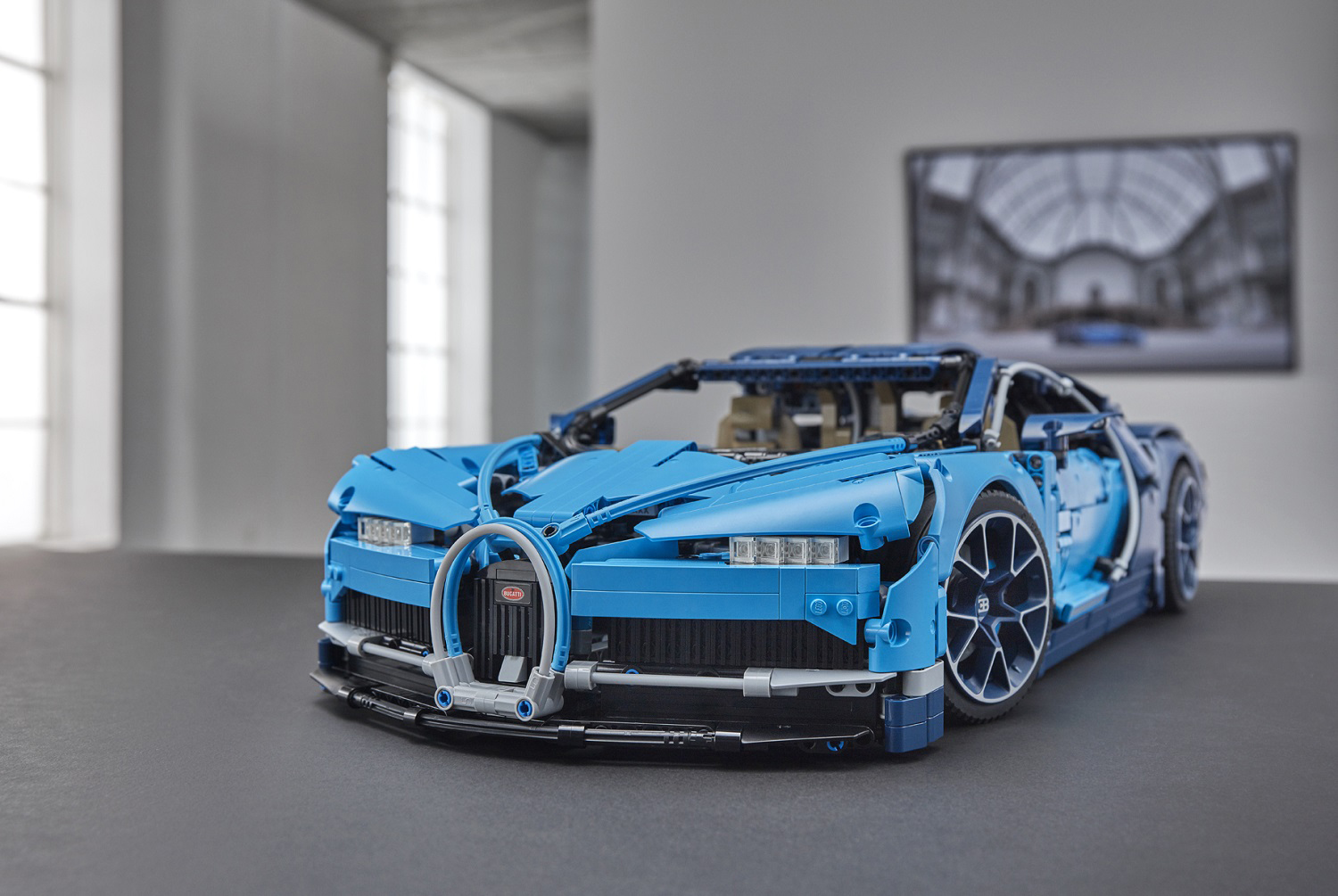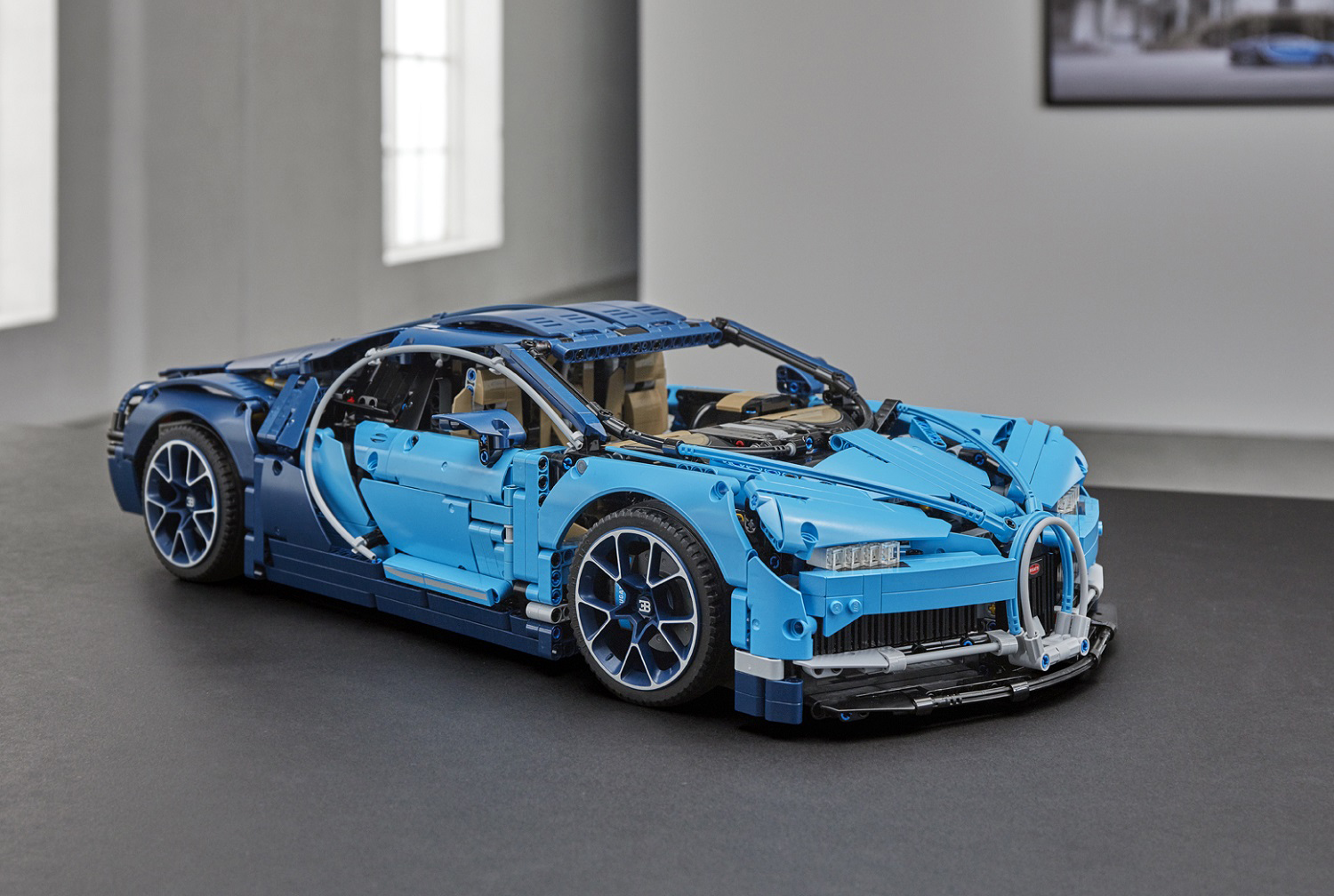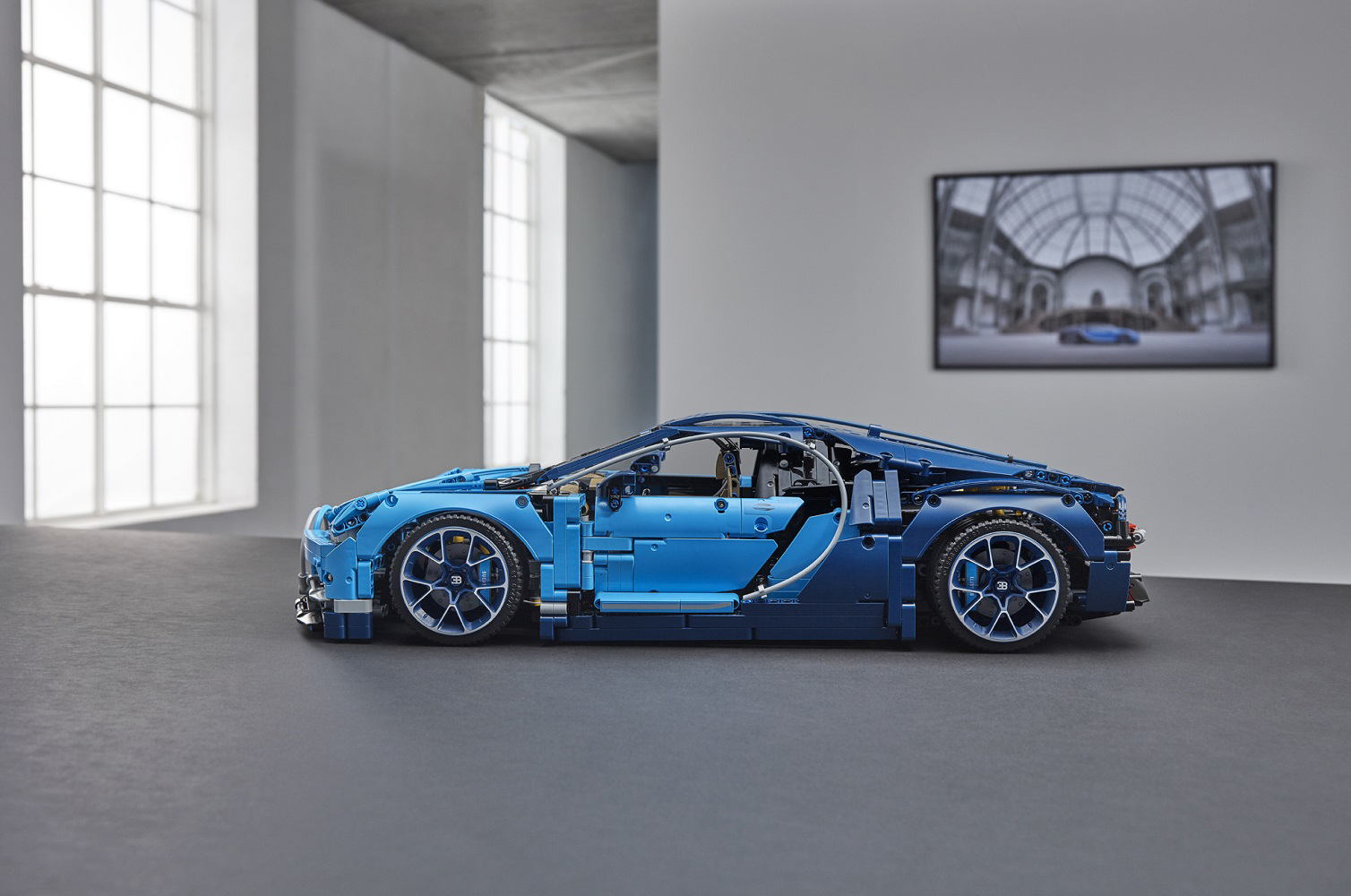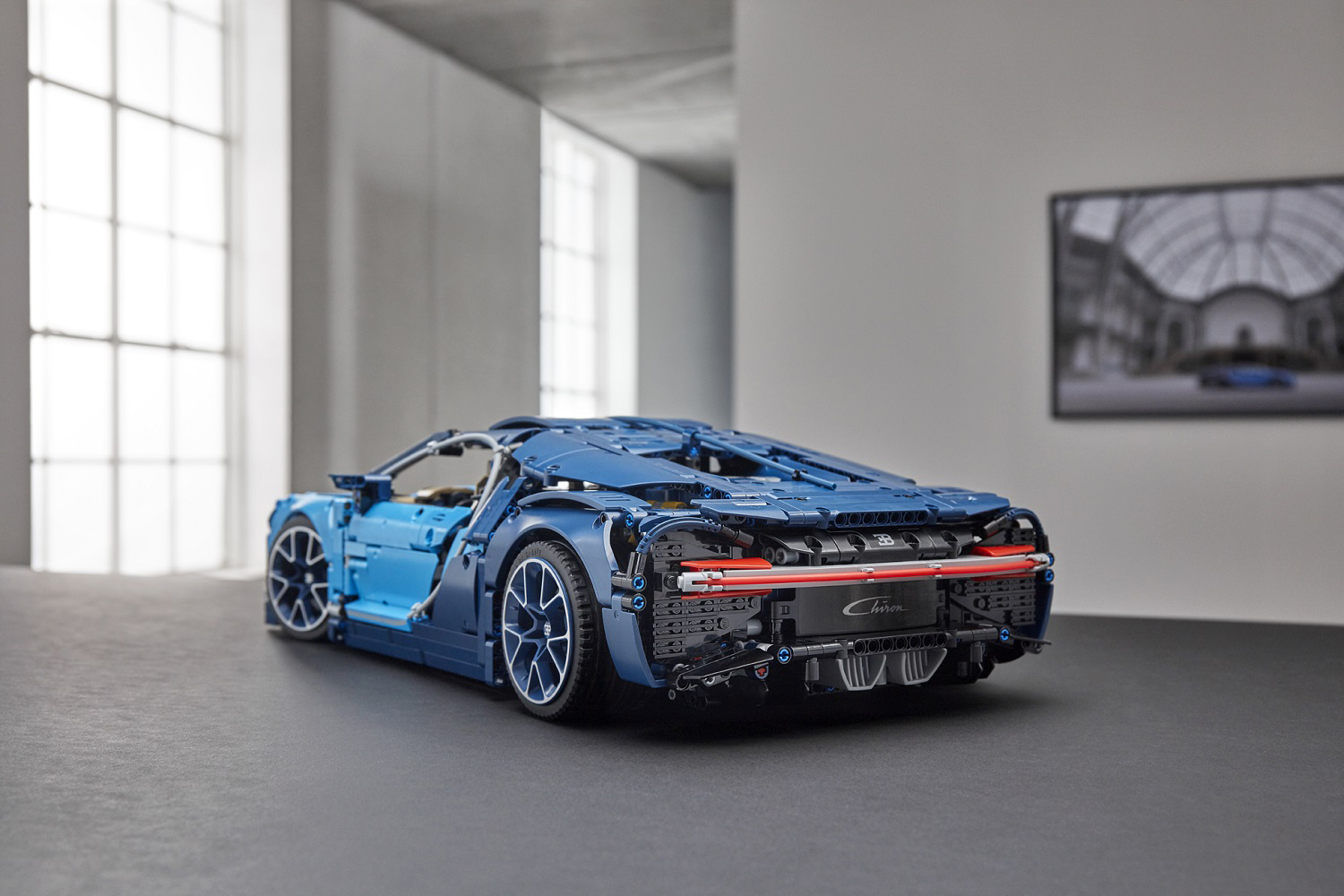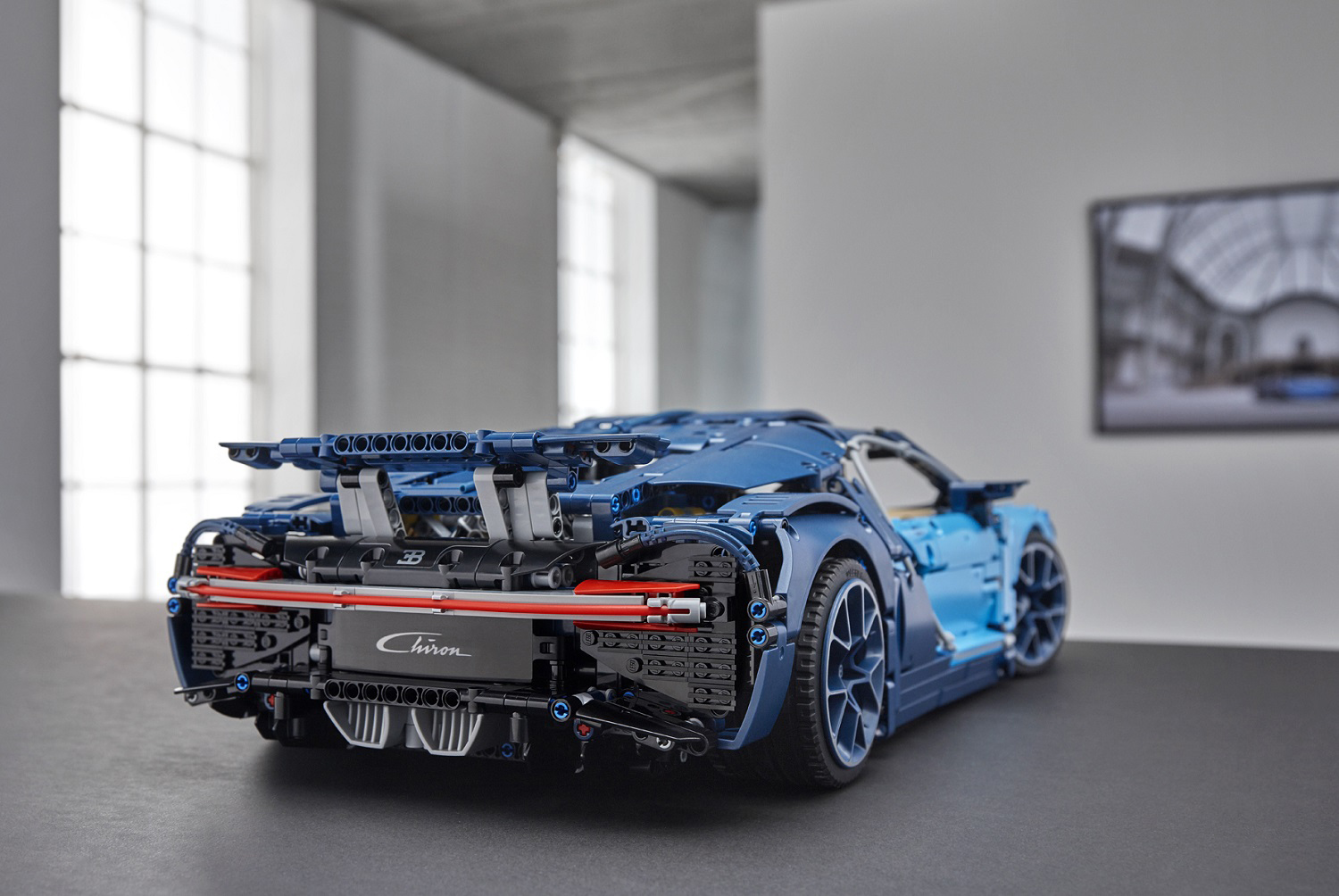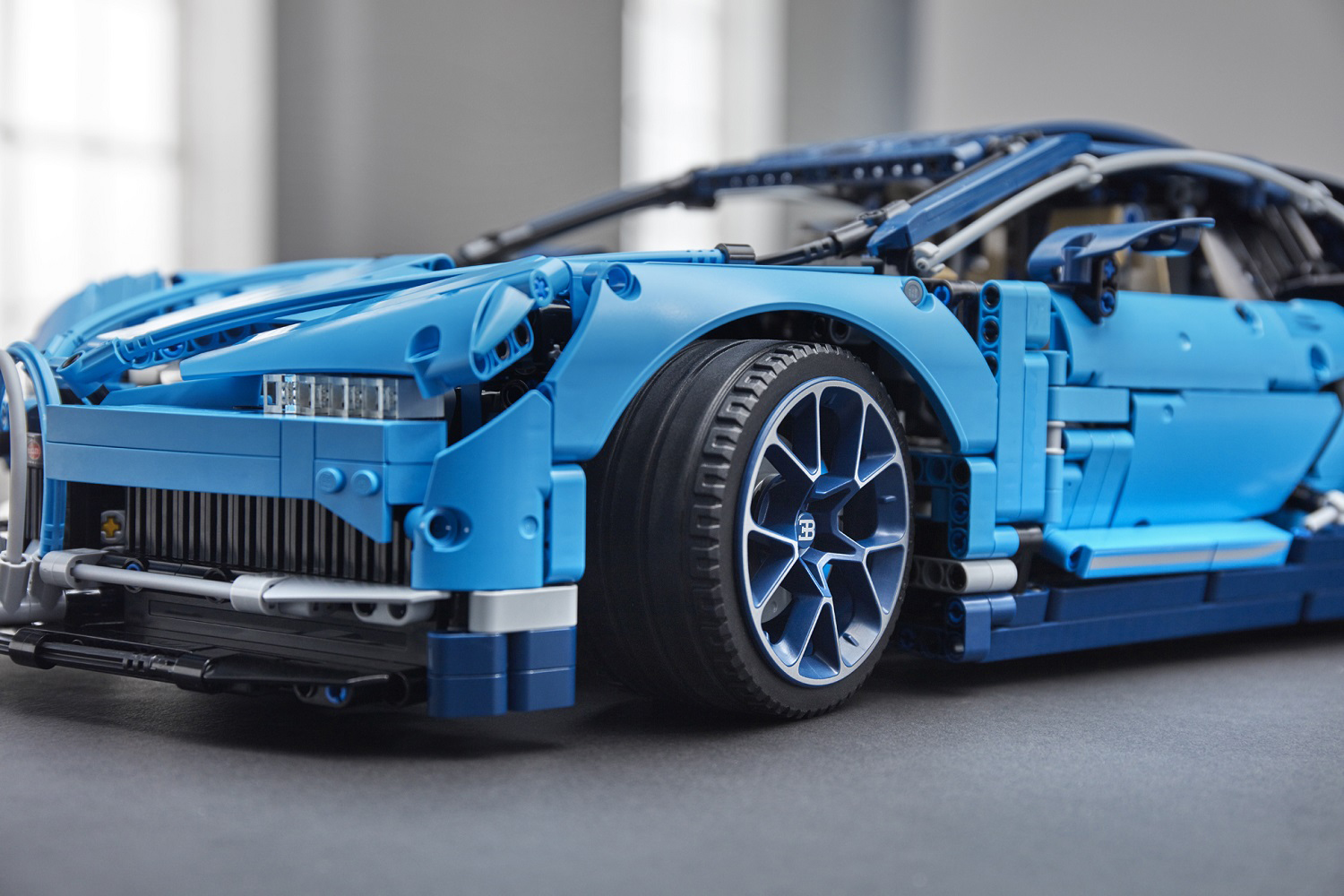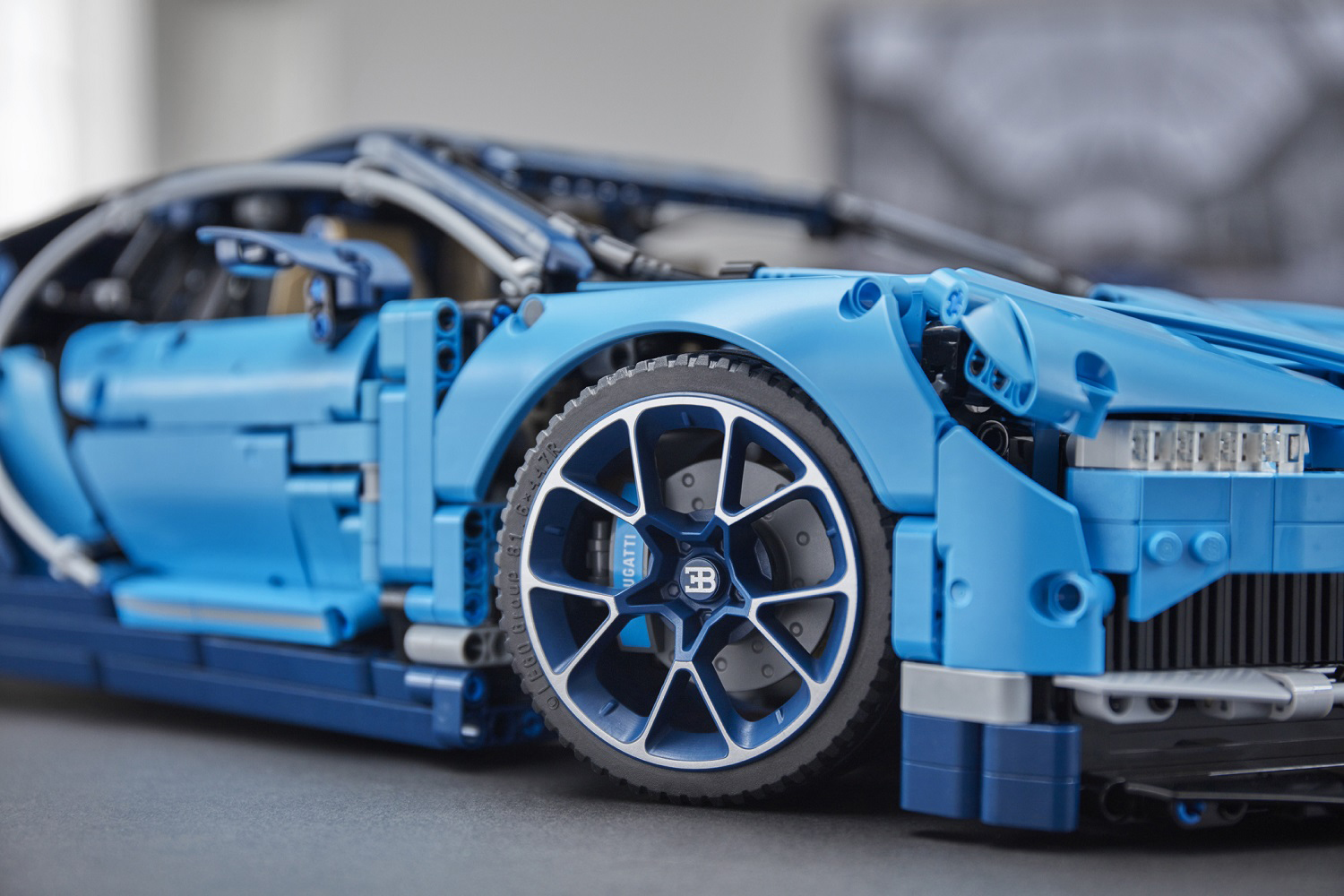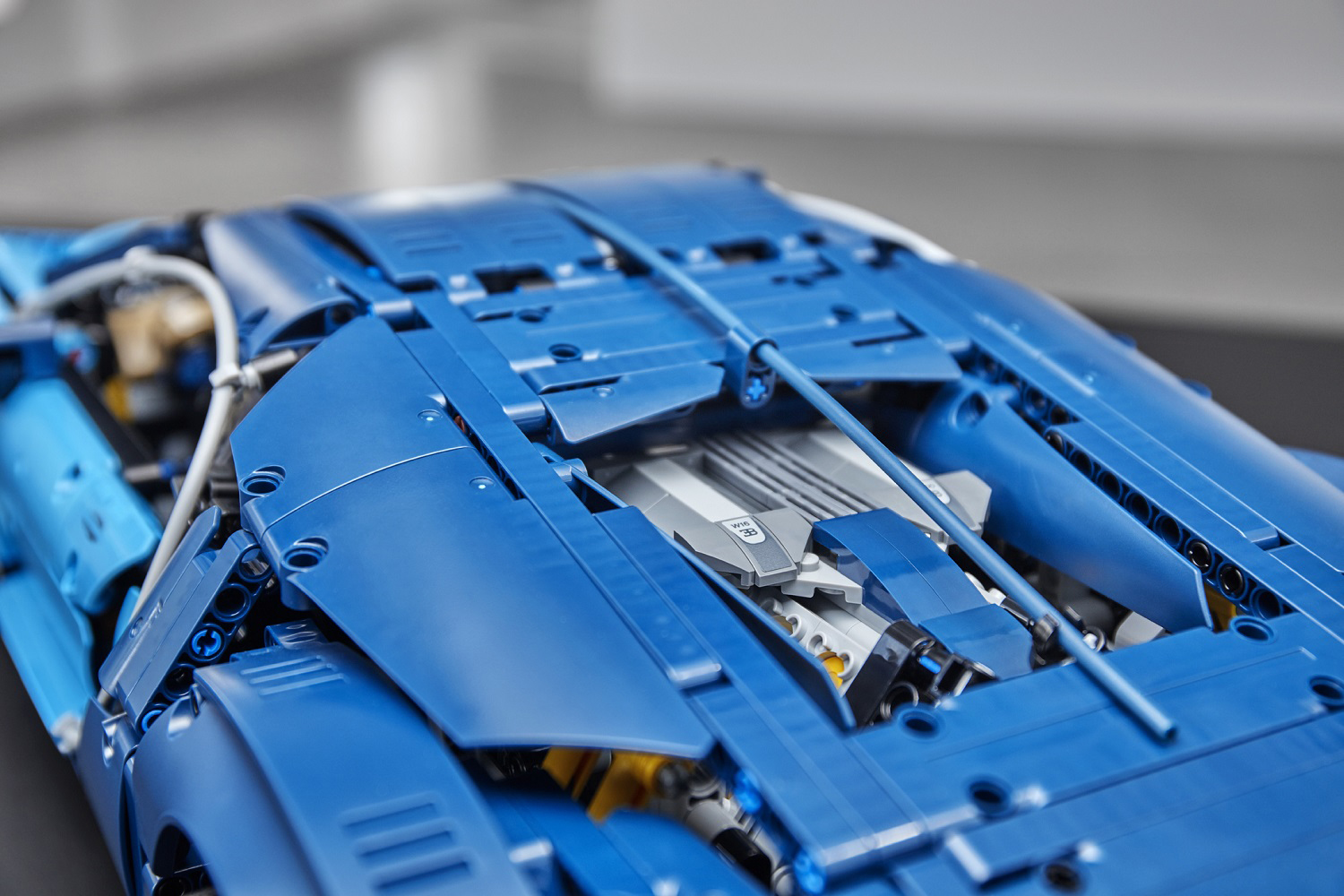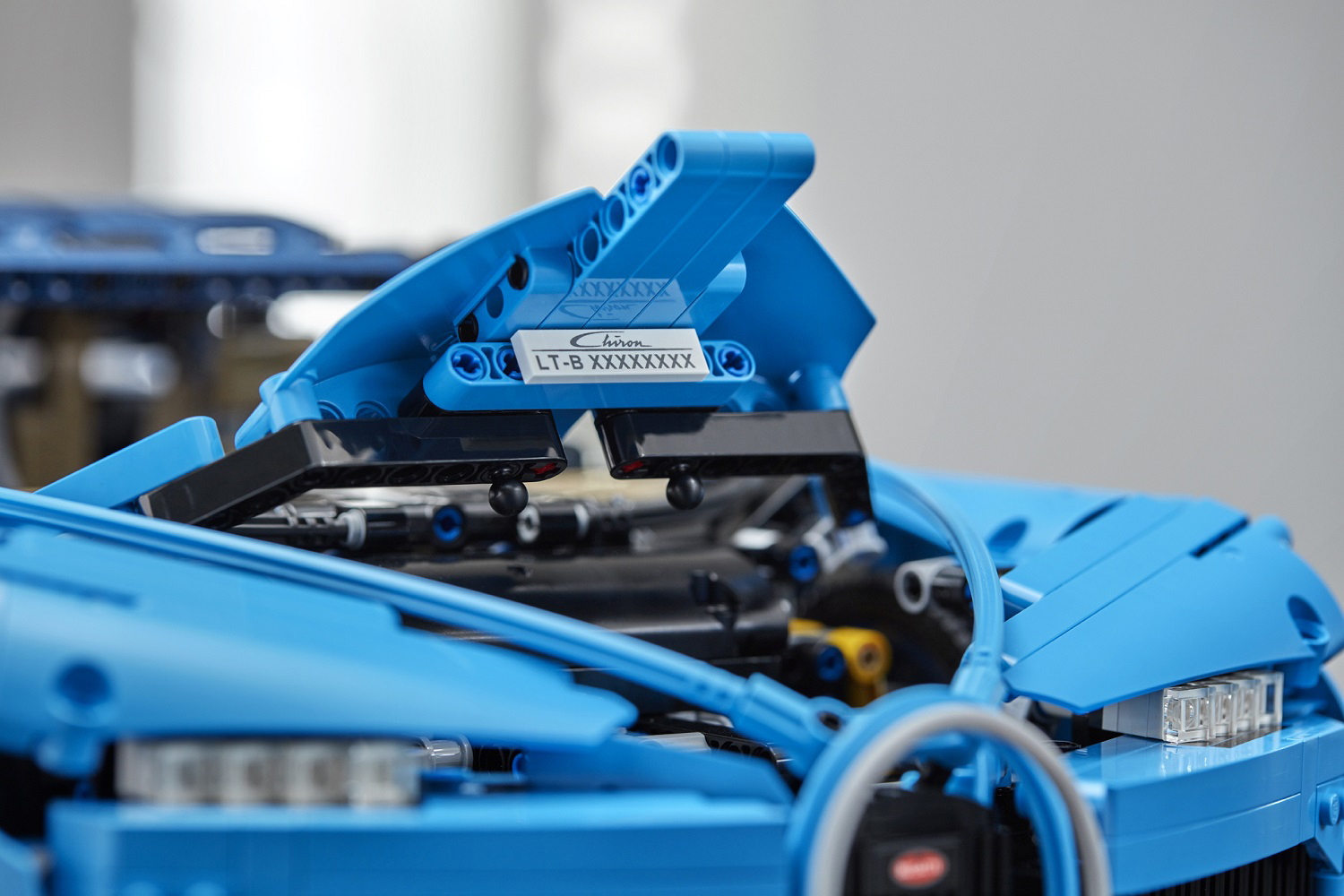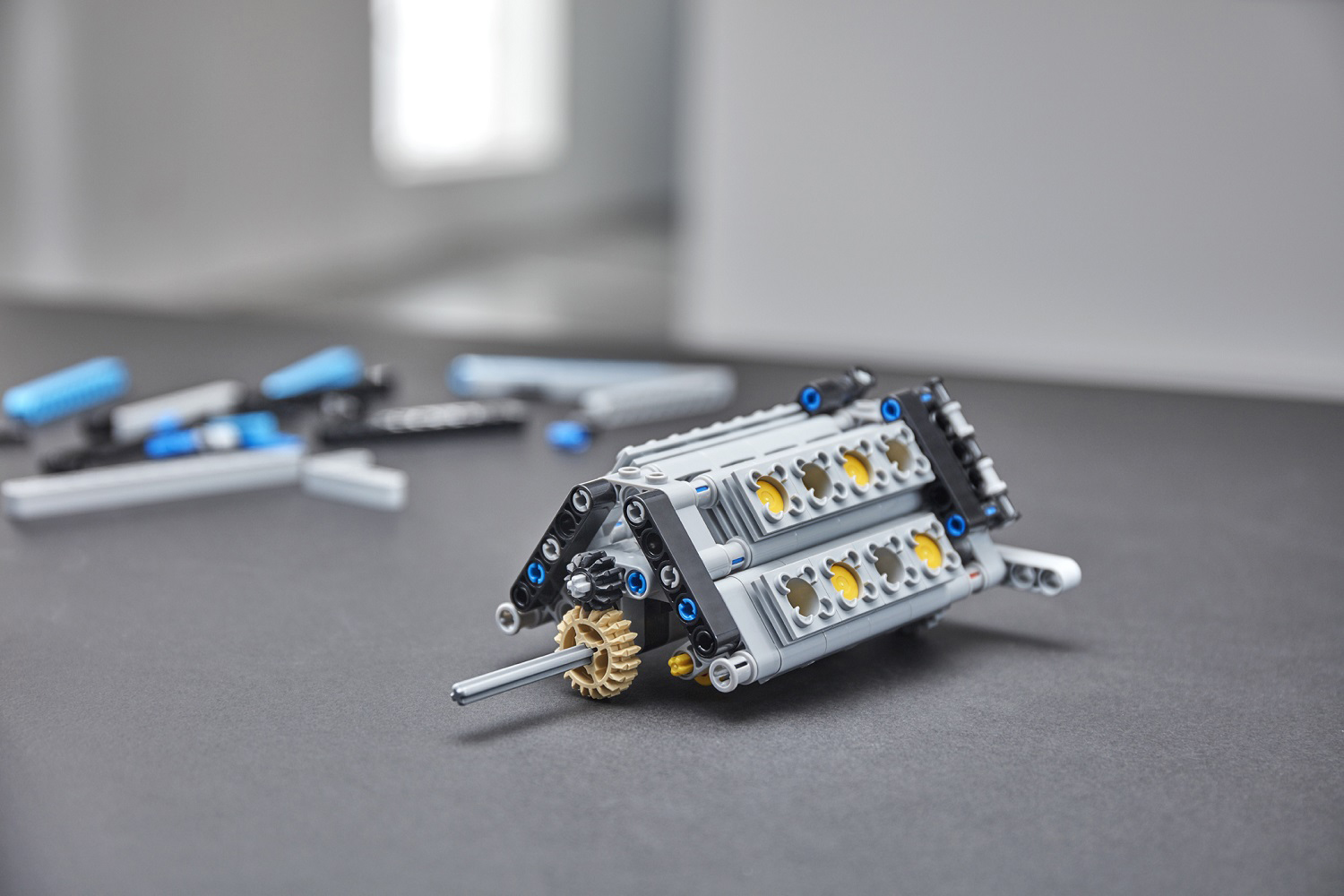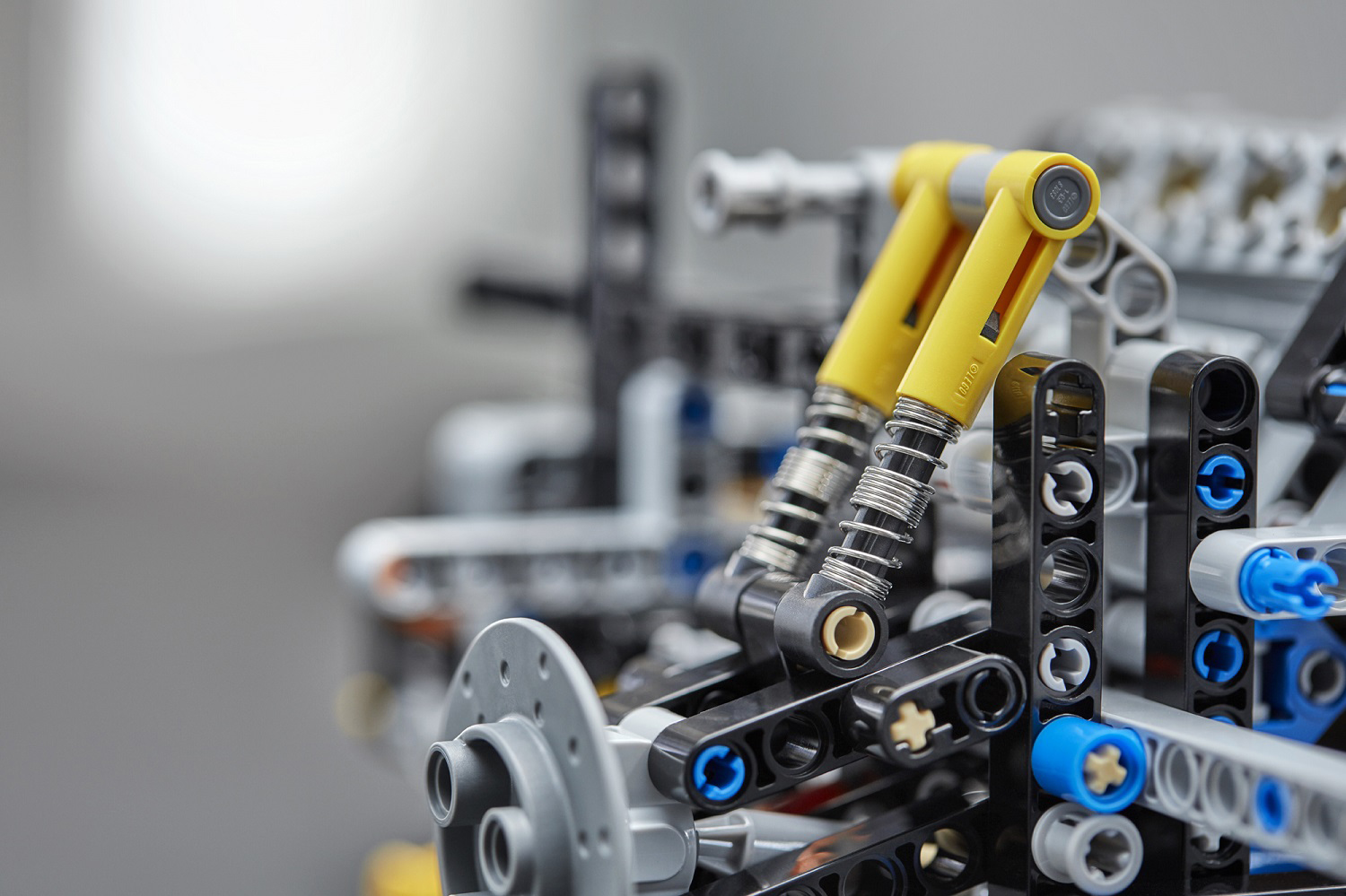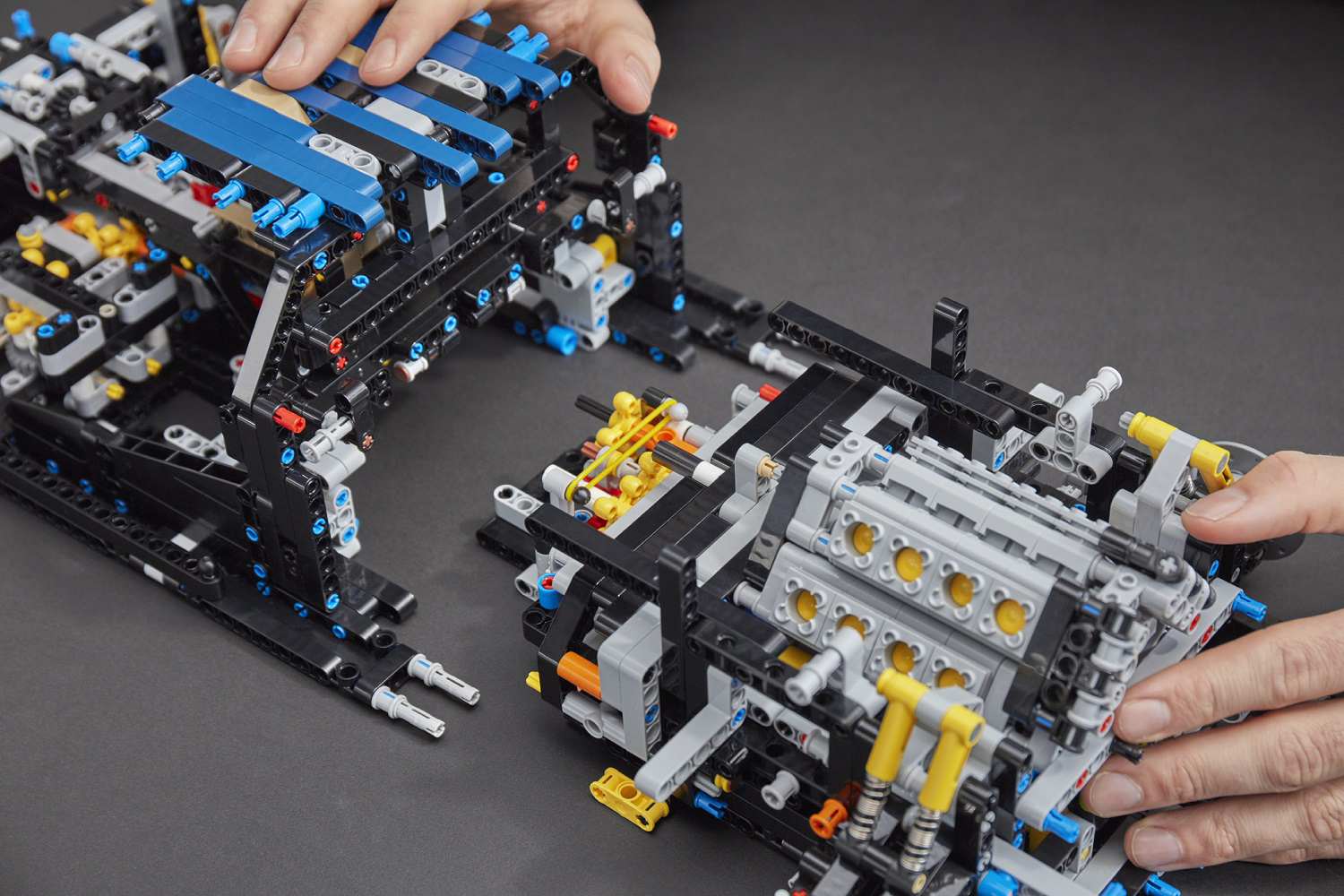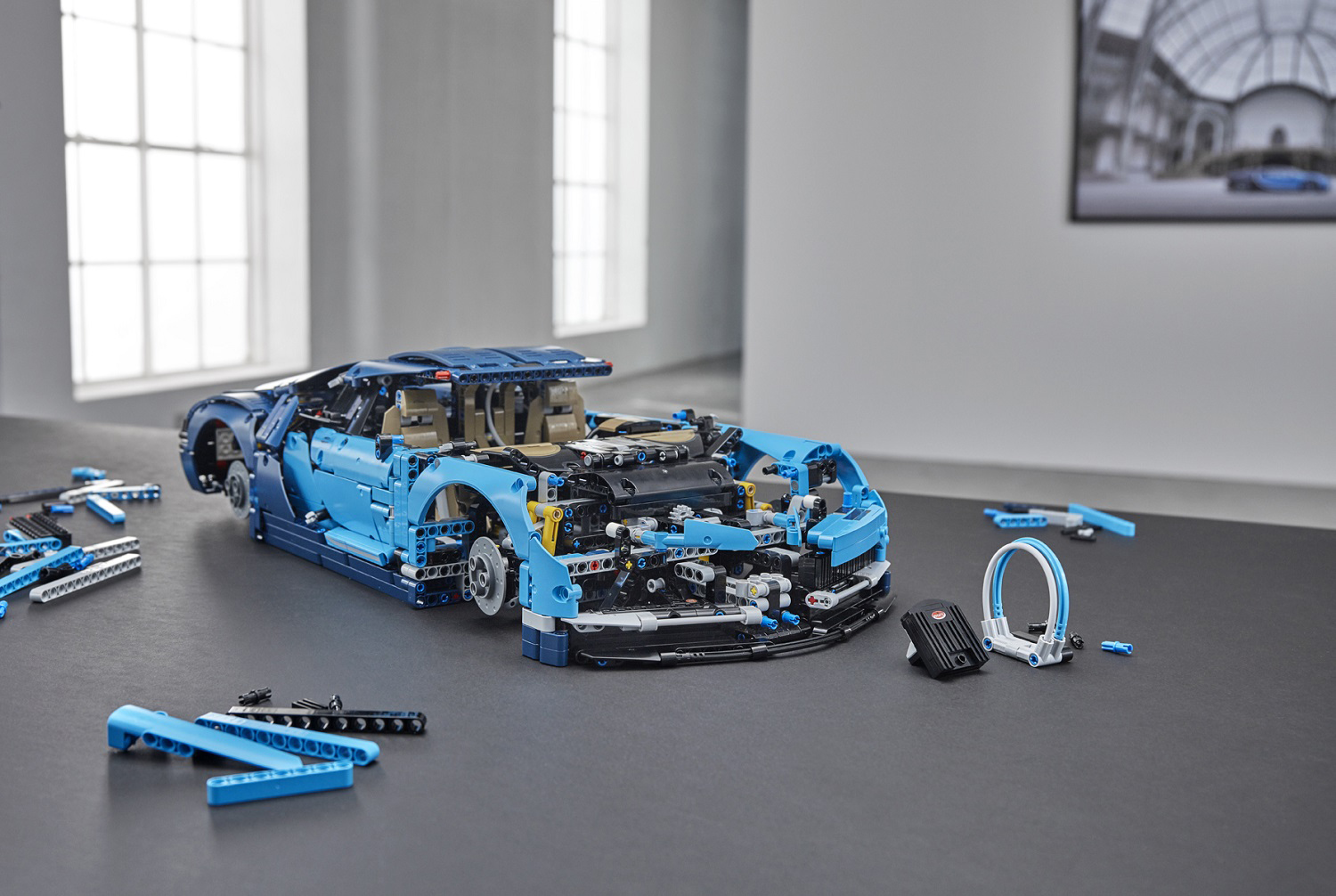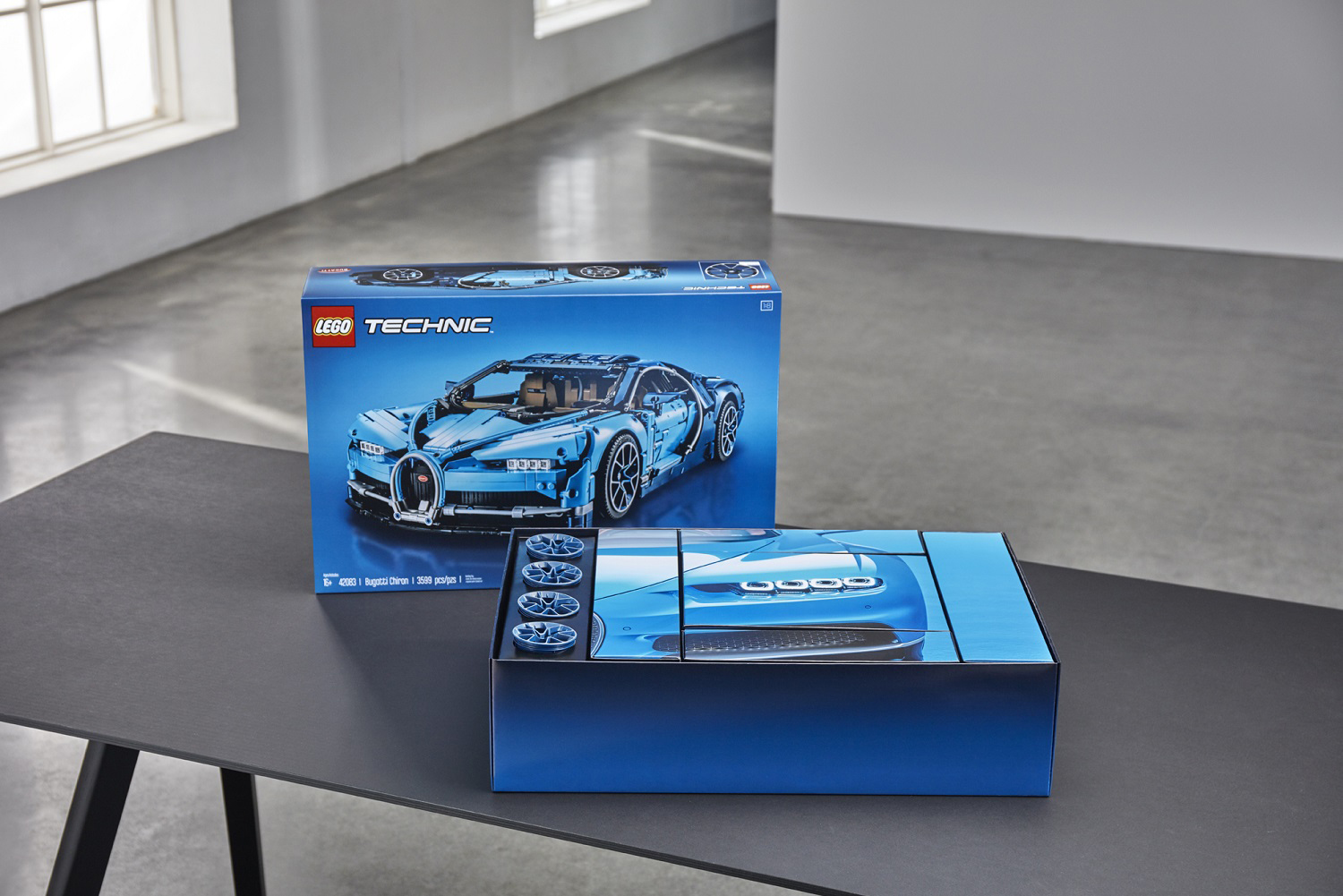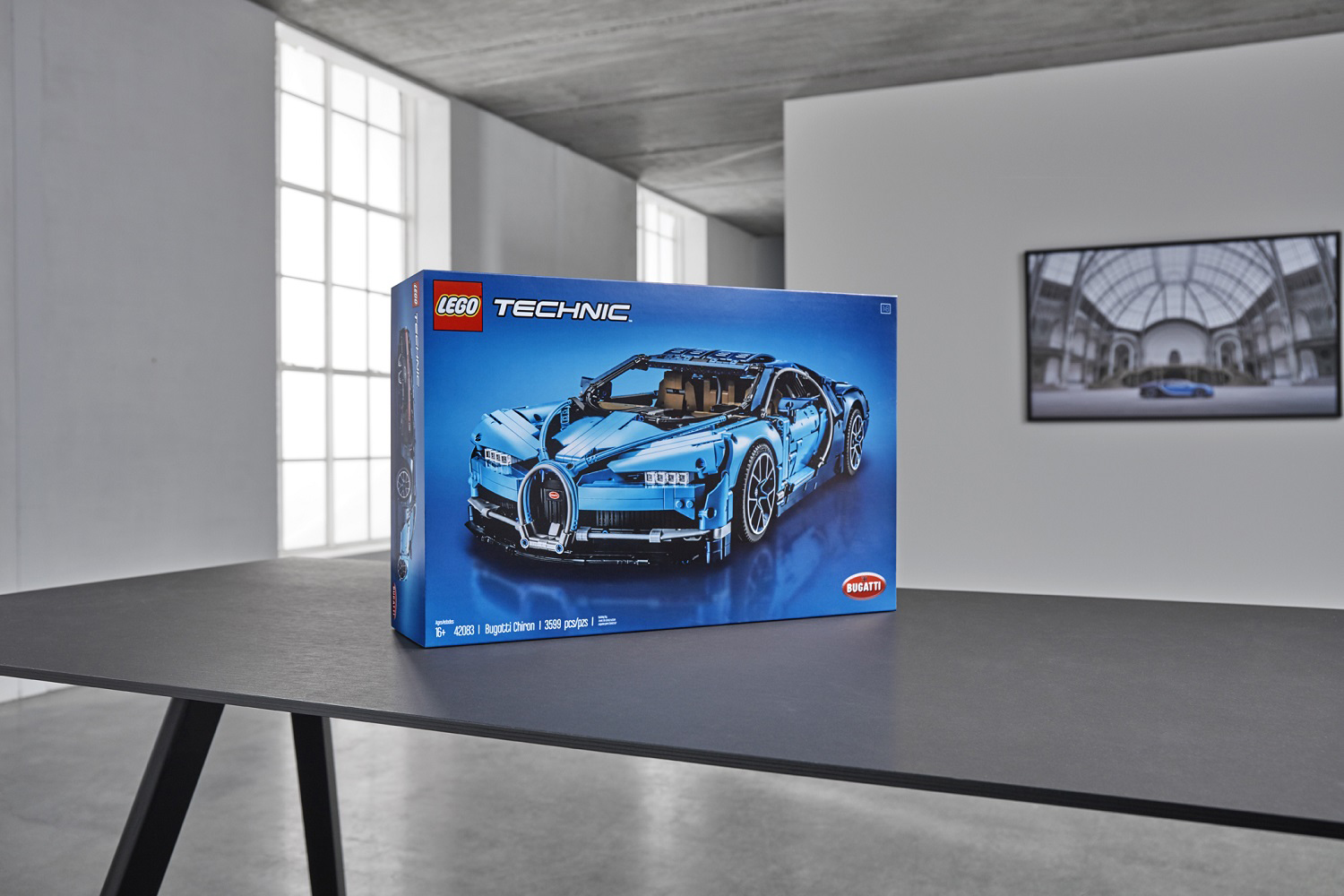It takes about two months to make a Bugatti Chiron. It’s assembled entirely by hand in Molsheim, a small town located in France’s picturesque Alsace region, and Bugatti tests every car it makes on the roads around its factory for about 220 miles. It’s this stunning, unrivaled attention to detail that partially explains the $3 million price tag. You can pay a lot less for the Chiron if you’re willing to build it yourself — and buy it from Lego.
Of course, Lego Technic’s version of the car isn’t as quick or as nice inside as Bugatti’s. It’s made with plastic, not carbon fiber, and Lego evidently worried little about its drag coefficient. It’s also smaller than the actual car, though it’s not the kind of model you can easily fit on your desk. Lego tells us its 1/8-scale Chiron stretches over 5 inches tall, 22 inches long and 9 inches wide. It comes in a kit made up of 3,599 pieces.
Lego carefully studied the art of making a Chiron before it designed the kit. Builders begin by putting together the front part of the chassis, including the functional suspension and steering systems, before turning their attention to the rear sub-frame. That’s the Chiron’s beating heart; it’s where the 16-cylinder, 1,500-horsepower engine lives. The scaled-down W16 features moving pistons and it’s connected to a gearbox controlled by moving steering wheel-mounted shift paddles.
Here’s the cool part: the front and rear sections of the chassis come together just like they do in the real car. It’s a process Bugatti calls the marriage. After completing the chassis, builders begin assembling the car’s interior and the body panels. Look inside and you’ll notice seats with the Chiron logo and an accurate representation of the car’s instrument cluster, which consists of an analog speedometer flanked by two configurable screens. Lego included a speed key used to raise the rear wing and an overnight bag that fits in the trunk.
To maintain exclusivity, Bugatti will end Chiron production after it makes 500 examples. Lego’s version of the car isn’t limited, though every car comes with its own serial number. It’s on sale now at Lego stores around the world for $350. The kit comes with a coffee table-style collector’s booklet that includes comprehensive building instruction. See? It’s almost like buying the real thing.
